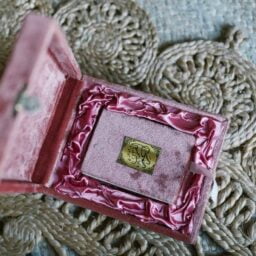DEFINITION OF GIFT
Section 122 of the Transfer of Property Act, 1872 defines gift. According to this section – “Gift is the transfer of certain existing moveable or immoveable property made voluntarily and without consideration, by one person, called the donor, to another, called the donee, and accepted by or on behalf of the donee.”[1]
Islam encourages the making of mutual gifts with the intention of transferring wealth from one person to another leading to cordiality and affection. A Muslim may validly transfer his property either whole or part to another person by way of gift in his lifetime. However, in Islamic law gifts are known as “Hiba”. And unlike the gift defined in the Transfer of Property Act, Hiba is usually transferred “inter vivos” i.e. “between living persons”. Thus, gift is a general term while Hiba is a restricted and well-defined legal term.
“Hiba” is defined by different jurists.
According to “Asaf Fyzee” – “Hiba is the immediate and unqualified transfer of the corpus of the property without any return.”[2]
“Ameer Ali” cites from “Durrul Mukhtar” – “A Hiba is a voluntary gift without consideration of property by one person to another so as to constitute the donee the proprietor of the subject-matter of the gift.”
According to “Hedaya” – “Hiba is an unconditional transfer of ownership in an existing property, made immediately without any consideration.”[3]
According to “Mulla” – “A Hiba is a transfer of property, made immediately and without any exchange by one person to another and accepted by or on behalf of the latter.”[4]
ESSENTIALS OF A VALID GIFT UNDER MUSLIM LAW
There are three conditions that need to be fulfilled for a “Hiba” to be valid. These are as follows –
- “A declaration of gift (Ijab) by the donor”
- “Acceptance of the gift (Qubool) by the done”
- “Delivery of possession by the donor and taking of possession by the done (Qabza)”
- DECLARATION BY THE DONOR
A declaration by the donor with the intention to transfer the subject matter of the gift to the donee in present is an essential formality of gift. In the case of State of U. P. v. Sayed Abdul Jalil,[5] it was held that “the declaration is one of the major formalities that have to be fulfilled for a gift to be termed as valid”. A declaration must be clear and free from ambiguity. A declaration may be oral or written. In the case of Ilahi Samsuddin v Jaitunbi Maqbul,[6] the court held that “under Muslim Law, the declaration and acceptance of gifts are often oral, regardless of the nature of the gift.” In the case of Mahboob Saheb v. Syed Ismail,[7] it was held that “the gift deed which is called Hibanama does not have to be on stamp paper, nor does it have to be attested or registered.”
There shall be a bonafide intention of the donor to make a gift. In the case of Sultan Miya vs Ajibakhatoon Bibi,[8] it was held that “the intention must not be ruined with a mala-fide intent to defraud rather it must be real and bonafide.”
In the case of Mohammad Mustafa v. Abu Bakr,[9] it was held that “any gift made under any sort of force or undue influence or by fraud cannot be termed as a declaration and the gift made was not valid.” Also, as discussed in Abdul Rahim v. Sk Abdul Zabar,[10] that the donor must be a sane individual and must be a major that means who is not under the age of eighteen years. The donor must be the owner of the property which he is gifting. The thing that is gifted should be in existence when the gift is made. If the gift is divisible, it should be divided. The thing gifted should be such property to benefit from which is lawful under the Shariah.
- ACCEPTANCE
Acceptance by a competent donee or a competent person on his behalf is a must for the validity of a gift. Acceptance may be expressed or implied. A child in the womb is capable to be a donee if he is born alive within 6 months from the date of the declaration. A juristic person can also be a donee. A minor or insane person can also be a done. A gift made in favour of a minor is to be accepted by a person who is the guardian of the minor and free from the legal bar.
In the case of Musa Miya v. Kadar Bux,[11] it was held that “if the father is alive and is the sole legal guardian of the minor, only he can act as a guardian of the property of the minor son, and without his acceptance, the gift would not be valid.”
In the case of Ghulam Hussain Kututubuddin Maner v. Abdul Rashid Abdulrajak Maner,[12], it was held that “if the gift is accepted by the mother, then also it is considered to be invalid and incomplete.”
So, there are specifically authorized people who can accept the gift on behalf of a minor or insane person. These authorized people include the father, father’s executor, paternal grandfather, and paternal grandfather’s executor.[13]
- DELIVERY OF POSSESSION
The donor should make delivery of the thing gifted to the donee when he makes a declaration. Such delivery of possession could be either “actual” or “constructive” and the gift becomes valid only after the delivery of possession of it.[14] In case of more than one donee possession by any co-sharer is presumed to be in the name and on behalf of other co-sharers. Registration of a deed of a gift without delivery of possession is not enough.[15] However, delivery is not necessary in the following cases –
- Where the donor and donee reside in the same house;
- Where the gift is from the husband to the wife or vice-versa;
- Where the father or mother makes a gift to a child;
- Where the guardian makes a gift to the ward;
- Where the subject of the gift is in possession of the done at the time of making the gift.[16]
CONCLUSION
Gift or “Hiba” is a well-defined term under Muslim law. A “Hiba” is mainly an unconditional and immediate transfer of property from one person to another without any consideration. The primary essentials of a valid gift are the declaration by the donor, acceptance by the donee, and delivery of possession. However, gift under Muslim law can only be transferred inter vivos. Both the donor and the donee must be in existence at the time of making the gift. And the donor and the donee of the gift must be competent. The donor must be a major and a sane person. The gift of a minor or an insane person can be accepted on their behalf. However, no registration is necessary for a gift to be valid.
Author(s) Name: Subah Samiha Afrid (University of Rajshahi, Bangladesh)
References:
[1] The Transfer of Property Act 1872, s. 122.
[2] Asaf A.A. Fyzee, Outlines of Muhammadan Law, P. 217.
[3] Hedaya, Tr Hamilton, p.482.
[4] D.F. Mulla, Principles of Mahomedan Law, P. 112.
[5] State of Uttar Pradesh v. Sayed Abdul Jalil, 1972 SCR (3) 342.
[6] Ilahi Samsuddin v. Jaitunbi Maqbul (1994) 5 SCC 476.
[7] Mahboob Saheb v. Syed Ismail, AIR (1995) SC 1205.
[8] Sultan Miya v. Ajibakhatoon Bibi, (1932) 59 Cal 557.
[9] Mohammad Mustafa v. Abu Bakr, AIR 1971 SC 361.
[10] Abdul Rahim v. Sk Abdul Zabar, AIR 2010 SC 211.
[11] Musa Miya v. Kadar Bux, AIR 1928 PC 108.
[12] Ghulam Hussain Kututubuddin Maner v. Abdul Rashid Abdulrajak Maner, MANU/SC/2742/2000.
[13] Sinha, R.K. ‘Muslim Law’, Central Law Agency, Allahabad, 2006, p176.
[14] Baillie, Digest of Mohammedan Law, 1875, p. 508; Mulla’s Principles of Mahomedan Law, 19th edition, (ed. M. Hidayatullah and Arshad Hidayatullah), 1990, p. 118.
[15] Dr. Muhammad Faiz-ud-Din. ‘A Text Book on Islamic Law’, Shams Publications, Bangladesh, 2016, P.163,164
[16] Asaf A.A. Fyzee, Outlines of Muhammadan Law, PP. 232-237














